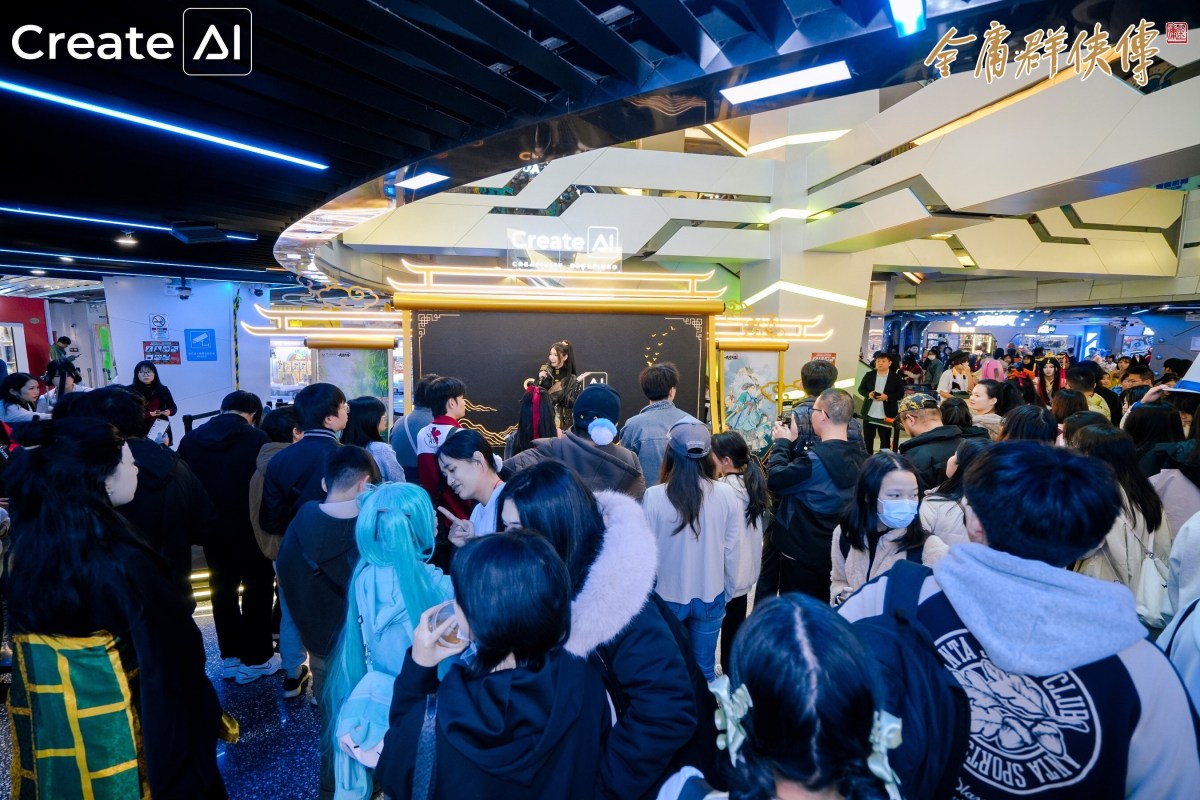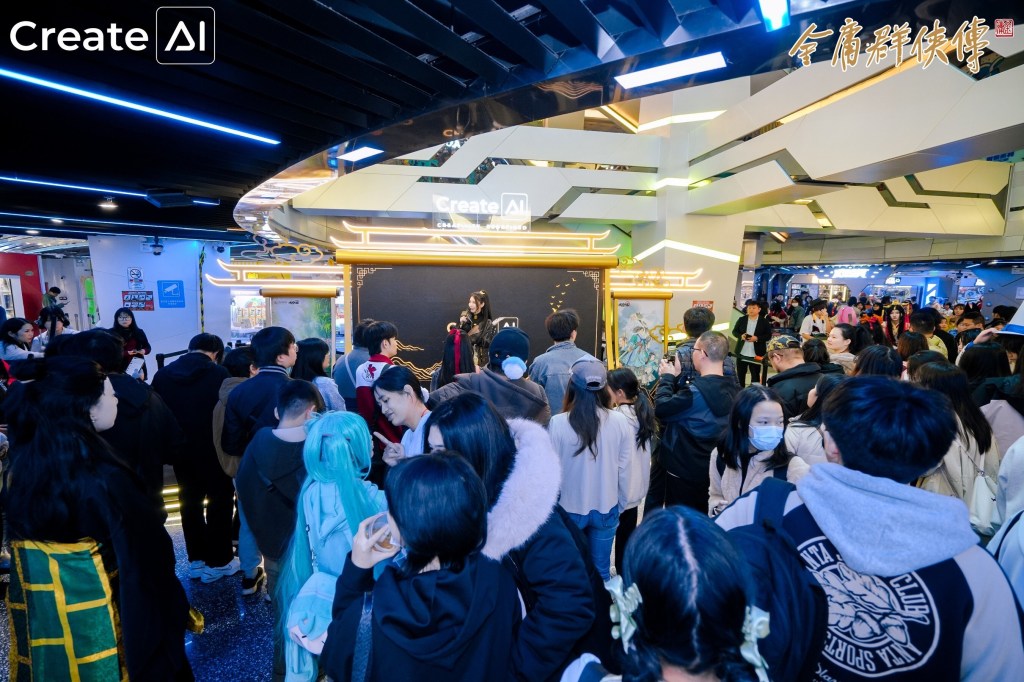## Is AI About to Script the Future of Gaming? CreateAI CEO Says Yes!
Hold onto your controllers, gamers, because the future of entertainment just got a whole lot more interesting. Forget pre-scripted narratives and repetitive AI companions, because CreateAI is poised to revolutionize how we experience games. We’re talking about an AI so powerful, it can generate entire storylines, characters, and even levels in real-time, blurring the lines between player and creator.

The Role of AI in Digital Entertainment: Trends and Insights

The digital entertainment industry has witnessed a significant transformation in recent years, driven by the rapid advancements in Artificial Intelligence (AI) technology. AI is revolutionizing the way content is created, consumed, and monetized. In this section, we will explore the trends in AI adoption, insights from industry experts, and best practices for implementing AI in digital entertainment.

Trends in AI Adoption
The adoption of AI technology in the digital entertainment industry has been increasing rapidly, driven by the need for personalized content, improved user experience, and increased efficiency. According to a report by Gamestanza, the global AI market in the digital entertainment industry is expected to grow at a CAGR of 24% from 2023 to 2028.
- Personalization: AI-powered personalization is becoming increasingly popular in digital entertainment, allowing users to receive content tailored to their preferences and interests.
- Automation: AI is being used to automate various tasks, such as game development, animation, and content moderation, freeing up human resources for more creative and strategic work.
- Virtual Assistants: AI-powered virtual assistants are being integrated into digital entertainment platforms, providing users with a more immersive and interactive experience.
- Mo Chen, CEO of CreateAI, believes that AI will revolutionize the way content is created and consumed in the digital entertainment industry. “AI will enable us to create more personalized, interactive, and immersive content, which will lead to a more engaging user experience,” he said.
- Shōji Kawamori, Japanese anime designer and collaborator with CreateAI, believes that AI will play a crucial role in the development of new content formats and business models. “AI will enable us to create new types of content that were previously impossible to produce, opening up new revenue streams and opportunities for the industry,” he said.
- Data Management: Companies need to ensure that they have access to high-quality data, which is necessary for training and deploying AI models.
- Model Training: Companies need to develop and train AI models that are accurate, reliable, and explainable.
- Deployment: Companies need to deploy AI models in a way that is scalable, secure, and compliant with regulatory requirements.
Insights from Industry Experts

Industry experts believe that AI will continue to play a vital role in shaping the digital entertainment industry. According to a survey conducted by Gamestanza, 85% of industry experts believe that AI will be a key driver of innovation in the industry over the next five years.
Best Practices for AI Implementation
To implement AI successfully in digital entertainment, companies need to follow best practices that include data management, model training, and deployment. According to a report by Gamestanza, the key challenges in AI implementation are data quality, model interpretability, and explainability.
CreateAI’s Business Strategy: A Comprehensive Analysis
CreateAI, a company that has pivoted from autonomous trucking to AI animation and gaming, has announced its long-term business strategy for generative AI animation and gaming. In this section, we will examine CreateAI’s business strategy, financial projections, and risk management measures.
Long-Term Business Strategy
CreateAI’s business strategy is focused on developing and deploying AI technology for the creation of high-quality animation and gaming content. According to a report by Gamestanza, CreateAI plans to achieve this through partnerships with leading anime and gaming studios, and by developing its own AI-powered content creation tools.
- Partnerships: CreateAI plans to partner with leading anime and gaming studios to develop high-quality animation and gaming content using its AI technology.
- Content Creation Tools: CreateAI plans to develop its own AI-powered content creation tools, which will enable it to create high-quality content more efficiently and cost-effectively.
- Funding: CreateAI plans to raise $25 million in funding to support its business strategy.
- Revenue Projections: CreateAI’s financial projections indicate that it will achieve $100 million in revenue by the end of 2025.
- Regulatory Risks: CreateAI plans to mitigate regulatory risks by ensuring compliance with relevant regulations and laws.
- Technology Risks: CreateAI plans to mitigate technology risks by investing in research and development and by partnering with leading technology companies.
- Market Risks: CreateAI plans to mitigate market risks by diversifying its revenue streams and by investing in market research and analysis.
Financial Projections and Funding
CreateAI has announced that it plans to raise $25 million in funding to support its business strategy. According to a report by Gamestanza, CreateAI’s financial projections indicate that it will achieve $100 million in revenue by the end of 2025.
Risk Management and Mitigation
CreateAI has identified several risks associated with its business strategy, including regulatory risks, technology risks, and market risks. According to a report by Gamestanza, CreateAI plans to mitigate these risks through a combination of regulatory compliance, technology innovation, and market diversification.
Conclusion
The interview with CreateAI CEO paints a vibrant picture of the future of digital entertainment, one where AI stands as a powerful engine driving creativity and innovation. From crafting captivating narratives to generating stunning visuals, AI is poised to revolutionize every facet of game development, ushering in an era of unprecedented possibilities. As Mr. [CEO’s name] aptly stated, AI is not about replacing human artists and developers, but rather empowering them to reach new heights. By automating tedious tasks and offering intelligent suggestions, AI can free up creative minds to focus on the core elements that make entertainment truly engaging.
This shift towards AI-powered creation has profound implications for the gaming landscape. We can anticipate a surge in the number and diversity of games being produced, with smaller studios and independent developers empowered to compete on a level playing field. Furthermore, AI’s ability to personalize experiences promises to create deeper connections between players and their virtual worlds. Imagine games that adapt to your individual playstyle, learn your preferences, and even generate unique storylines based on your choices. This level of interactivity and immersion has the potential to redefine what it means to be a gamer.
The future of digital entertainment is undeniably intertwined with the evolution of AI. As this technology matures, it will undoubtedly push the boundaries of what we consider possible, blurring the lines between reality and virtuality. The question is not if AI will reshape our gaming experiences, but rather how we will shape it. Will we embrace its potential to unlock new frontiers of creativity and innovation? The answer, ultimately, lies in our hands.